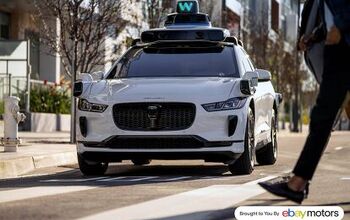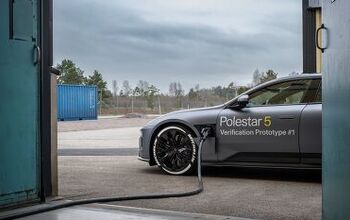The Escalating Costs of Owning a New Car
The expenses tied to owning a brand-new vehicle have risen significantly, marking a substantial departure from the preceding year when the annual cost stood at $10,728. These figures, derived from AAA's Your Driving Costs (YDC) dataset, which has consistently delivered information on the costs linked to new vehicle ownership for over seven decades, underscore the financial implications faced by new car owners. This article dissects the key drivers of this upward cost trajectory, centering on the effects of global supply chain disruptions and shifts in vehicle pricing.
The Financial Breakdown
Manufacturer's Suggested Retail Price (MSRP)
The most recent YDC study discloses an average MSRP of $34,876 for new vehicles in 2023, marking a 4.7 percent uptick from the preceding year. It is important to note that the MSRP doesn't necessarily align with the actual purchase price, which can fluctuate depending on market demand. This increment in sticker prices has a direct bearing on finance costs, reflected in an average annual finance charge of $1,253, signifying a staggering 90 percent surge compared to the prior year.
Depreciation
Depreciation, the decrease in a vehicle's value over time, serves as another significant cost component. For 2023, new vehicles are anticipated to depreciate by an average of $4,538 per year over a five-year ownership period, constituting a 24 percent escalation compared to 2022. This increase is attributed, in part, to the burgeoning prices of new vehicles, in stark contrast to the diminishing values of used vehicles.
Vehicle Characteristics
Automakers have shifted their focus toward producing larger, more luxurious, and consequently more expensive vehicles, often equipped with additional features that contribute to the overall hike in ownership expenses.
Fuel and Electric Charging Costs
While fuel expenses per mile have experienced a modest decline, the costs associated with electric vehicle (EV) charging have risen, escalating from 13.9 cents per kilowatt-hour (kWh) to 15.8 cents per kWh. This uptick in EV charging costs is associated with higher-than-anticipated inflation, according to the U.S. Energy Information Administration (EIA). It is noteworthy that ½-ton pickups, despite their popularity, feature the highest average driving costs among all vehicle categories covered in the YDC study.
Factors Impacting Pickup Trucks
Curiously, the pickup truck market has witnessed a slowdown over the past year, attributable to increasing gas prices and heightened financial expenses. Although pickup trucks excel in hauling and towing capabilities, many buyers do not fully utilize these features. Consequently, potential buyers must factor in the substantial cost, exceeding $1 per mile, associated with owning and operating pickups.
Expert Insights
Greg Brannon, AAA's director of automotive research, emphasizes the necessity of comprehending the comprehensive expenses tied to owning a new vehicle. He advises consumers to negotiate astutely, initiate their search early, secure pre-approval for financing, formulate a comprehensive budget that encompasses all ownership elements, and maintain separate negotiations for the car's price, finance rate, and trade-in value.
AAA's Car Buying Advice
AAA offers several recommendations for prospective car buyers:
- Cost Comprehension: Attain a thorough understanding of all costs linked to ownership to facilitate effective negotiation.
- Early Start: Given limited inventory, consumers may encounter restricted choices for specific vehicle models, potentially necessitating waiting for delivery or pre-ordering.
- Finance Preparation: Prior to discussing finance rates with the car dealer, secure pre-approval from a financial institution to establish a threshold for the most favorable lending rate.
- Budgeting Prudence: Develop a comprehensive budget that incorporates elements beyond just monthly payments, including insurance, fuel, routine maintenance, and more.
- Separate Negotiations: Distinguish negotiations for the car's cost, finance rate, and trade-in value to make informed decisions.
The Your Driving Costs Calculator
The Your Driving Costs online calculator furnishes an interactive and personalized breakdown for car shoppers, aligned with AAA's annual scrutiny of new car ownership. It offers comprehensive cost analyses of specific vehicles, categorized according to location and individual driving habits, thereby enabling consumers to assess whether ownership costs align with their financial plans.
In 2024, owning a new car has become substantially costlier, chiefly attributed to factors such as escalating vehicle prices, augmented depreciation, and fluctuating fuel and electric charging expenses. Acquiring a comprehensive understanding of the complete scope of ownership costs and heeding AAA's car buying advice can empower consumers to make well-informed decisions.
This article was co-written using AI and was then substantially edited and optimized by our editorial team.
More by TTAC Staff
Latest Car Reviews
Read moreLatest Product Reviews
Read moreRecent Comments
- Cprescott Sounds like people are trying to find reasons to justify expensive golf carts AFTER the fact instead of building into networks for this purpose. I can see someone wanting to recharge their batteries with solar, but to purposely pull energy from the grid and to put the battery through more cycles to act as a power brick seems like an expensive option.
- IBx1 Any "cloud" hardware (cloud is just someone else's computer) that gets mandated into e-waste like this should have its software open-sourced by law so it can continue to be used at the owner's choice.If you have one of these and they don't give you a refund, issue chargebacks for as many months of your subscription as will add up to the cost of the device.
- Zerofoo This is my worry with ALL in-car technology, including tech provided by auto OEMs. What happens when the manufacturer of your car decides not to provide updates or repair parts for the giant tablet stuck to your dashboard that runs your HVAC controls? This is a way different problem than the manufacturer opening up the CAD files for the water pump in your car to the aftermarket.
- Carson D Has the energy storage fire in San Diego burned itself out yet?
- JMII I think most are missing the point. This is not to power your house, the way I read it the concept is store electrons when production of them is not in demand, IE: over night. Then when everyone walks up and turns on the blender, coffee maker, toaster, TV, etc and electrons are suddenly in high demand you can sell them back from the storage location which is your EV just sitting in the garage. This way the grid is not overwhelmed. It could work, you would be paid to let someone "borrow" your electrons at peak until you could recharge during downtime. Due to surge / demand pricing you would buy low and sell high. I see this working best for people working from home or accessing a plug at work. After all your vehicle spends 90% of its time parked doing nothing and going nowhere. Why not get paid for that idle time? A simple app would could be programmed to cut off the transfer at a predetermined level, lets 30-50% charge so you could still drive home.The lack of outside the box thinkers on this site is getting depressing. Everything regarding EVs is always the worst idea ever 🙄

































Comments
Join the conversation